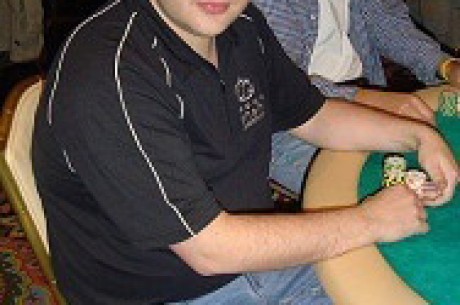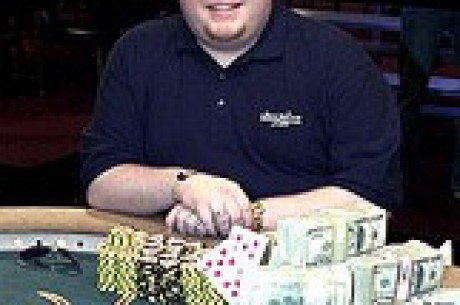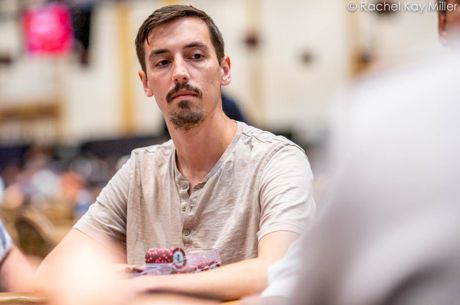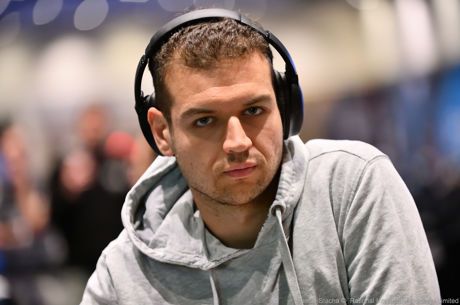Roy Cooke - The Voice Of Poker
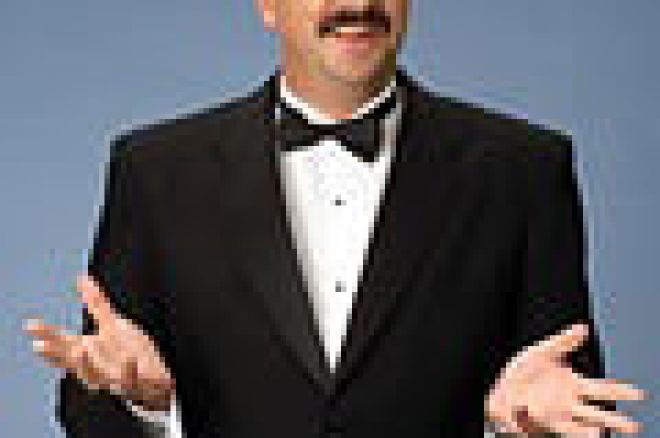
In 1980, at the age of 22, Roy Cooke took the championship at the Amarillo Slim Super Bowl of Poker in Lake Tahoe. He had supported himself playing poker all over the West Coast, playing since he was in his teens and into his young adulthood. He also found the lifestyle that went with the game. Before he knew it, the lifestyle had consumed his formidable poker skills. He realized he had to step back, and he did. With that decision, Roy Cooke became an even more admirable person in the game of poker.
Since then, Roy has gone on to become one of the most respected voices in poker. He is a featured writer with CardPlayer Magazine, the spokesman for Planet Poker, and can often be seen posting his thoughts on the United Poker Forum. He also routinely routs the cash games of Las Vegas, which has been his home since the mid 1980's. While you may not see his name on the World Poker Tour or the World Series of Poker winners' lists, he is still regarded as a sage to everyone in the poker world. I recently had a chance to discuss many things with Roy, and here is what he had to say.
PN: You have been a professional player in Las Vegas for over sixteen years and playing poker since you were in your teens. How has your game changed since you started?
RC: When I first started playing poker it was mostly low limit, solid play of solid cards got the money. When I moved up in limits, the games got tougher and I had to put more plays into my game. I couldn't just sit and wait for the nuts and still get the best of it because the hand selection between players was much more equal. Now, with all the recent advances in book information, I find I must devise plays that counter the standard plays in the popular poker books.
PN: What are some of the biggest errors new players make? How do you suggest they avoid making these mistakes?
RC: Playing too many hands. As a new player, you should play tighter than standard strategy would dictate as your play of hands is going to be inferior to your opponents who have more experience. Also, most poker players overestimate their abilities; it's like the old story about 95% of American men believing they are above average drivers.
PN: You are well versed in all forms of poker. Is there any particular game you prefer and those that you stay away from?
RC: My best game has always been Limit Hold 'Em. I tend to stay away from Stud games because I feel my logic skills are better than my recall skills and recall is much more important in Stud due to the upcards.
PN: Do you mainly focus on the cash games or tournaments? How do you find the skills differ between the two?
RC: I mostly focus on cash games. In tournaments, you can't go back into your pocket and get more chips, so survival skills become hugely more important. My style of play relies principally on consistency to achieve success. In tournament play a willingness to take risks is a much bigger variable.
PN: The United Poker Forum recently went through an upgrade. How did it go and what can we look for from UPF in 2005?
RC: www.UnitedPokerForum.com went through a complete overhaul. The old site could not handle the increase in traffic. I guess we were a victim of our own success! The new site has all sorts of new fun features, polls, quizzes, avatars and new features are going to be added. I'm looking forward to being part of this.
PN: Planet Poker was one of the first online poker sites. What drew you to it and what has changed since then for you to continue your alliance with it?
RC: The founder called me and introduced me to the industry. At the time, it was the only site on the 'Net; now we have over 250 competitors. I was fascinated by the whole concept of online poker and I still am. I think the future of poker will be online. Planet Poker itself is committed to ongoing innovation, and that makes it an exciting company to be a part of.
PN: Planet Poker continues to be a strong online website in the poker world. What is coming in 2005 from Planet Poker?
RC: Planet Poker launched a brand new, start from scratch poker program. We are the first software developer that has experience running an online gaming site to put out a program. Features, such as pre-select buttons, can be customer designed, the cards can be magnified for those with strained eyesight, the No-Limit slider bar is the best in the business. I think this program is going to be the best in the industry. There's too much to list in the way of new features; the best thing to do is log on and have a look.
PN: In some of your recent CardPlayer magazine articles, you have called for the creation of a national or international poker organization. What are some of the obstacles that need to be overcome for this to come to fruition?
RC: The biggest obstacle is getting the major players to cooperate. There are a handful of people who must work together to make this a reality, and they must recognize that their long-term interests are served by creating a strong voice for the whole industry.
PN: Is there a danger that too many organizations and tournament circuits may dilute the quality of the game?
RC: I think that most of the efforts to start organizations and tourney circuits will wither for lack of adequate financing and business acumen. I don't think they dilute the quality of the game, but they do make it more difficult to serve the game's greater good because they are working at cross-purposes.
PN: How do all who love the game of poker, be they professionals or the "home game" player, ensure that the current "golden days" do not disappear?
RC: I think the two things poker needs most are a strong national association and reasonable state and federal laws that recognize that poker is different from gambling. This includes reasonable regulation of Internet poker. To the extent that any player is able to contribute to these goals that is the best thing he or she can do to ensure that the current high level of participation in the game continues.
PN: What do you have planned for the future with your writings? Can we look for any books or other instructional materials?
RC: Our agent (writer's note: Roy's longtime collaborator is John Bond) is negotiating with several major publishers now. A poker rule book and a new column collection will be next, as well as reprints of our first two column books. The market is flooded with "how-to" books at the moment, although most of them don't offer very good poker advice. We will probably undertake that in the future, but writing something meaningful is a major project and that's not happening in the short term.
PN: It seems that you have been able to balance out your poker life with your professional life in real estate. Is that something you feel is critical to keeping your game on an even keel?
RC: Yes, too many players get caught up in the poker world and lose perspective of the real world out there. I've written a number of columns over the years about the importance of maintaining your relationships and life outside the game, and not letting the game take over your life.
PN: Do you feel that a strong family base is something necessary for a poker player?
RC: I think it is a good thing if you have a good relationship. Poker puts a lot of pressure on a family and if it is not handled well, it can have a negative effect. Trying to play well through personal and emotional problems is difficult and the downfall of many players.
PN: What are some thoughts you would pass to someone who feels they are going to make a living from playing poker?
RC: To dedicate your life to it, but don't make it your whole life. Also recognize that short term results, positive or negative, don't prove much. It takes a multitude of trials to get a fair picture of your abilities. Handicap yourself honestly. Don't play for ego, play to win the chips.
PN: With all the time that you have played poker, what is the toughest obstacle (or obstacles) that you have overcome?
RC: Myself. I think this is true of everybody. The human condition is not predisposed to play poker. Disciplining oneself to overcome the emotions, stresses, and learning curves of poker is very demanding.
PN: What has poker taught you about life?
RC: I think poker is a metaphor for life. In poker, as in life, you make decisions without being sure of what the future might hold. The flowcharting of life's and poker's decisions are often very similar. In both, you have to play the hand you're dealt, but it's incumbent upon you to make the most of what you have. In both, you have to put your bad beats behind you and move on.
PN: Finally, Roy, what is the one thing in poker that you want to achieve but haven't reached yet?
RC: I want to restore Planet Poker to one of the top five sites on the Internet!
PN: Thanks for your time, Roy.
RC: Thank you.
We would like to thank Roy for his time and encourage you to learn more about the man behind the game at www.texasholdem.net. His columns appear in every issue of CardPlayer Magazine and maybe you can catch him at www.planetpoker.com or www.unitedpokerforum.com as well.

